Suing a business for negligence can be an intimidating and complex process, but it is important to understand your rights in California if you believe you have been wronged. Knowing the legal process and the laws that govern businesses in California can help you make informed decisions about how to proceed.
This article will provide an overview of the legal process of suing a business for negligence, your rights under California law, and the role of a personal injury lawyer specializing in premises liability.
Need to file a lawsuit against a company?
No fees unless we win. Available 24/7.
Duty of Care Explained

What is “duty of care” in premises liability? In a nutshell, it’s the responsibility of owners and occupiers to ensure that guests or customers visiting their premises are kept safe from any potential hazards. This duty applies to retail stores, public parks, parking lots, residential properties, offices, restaurants – in fact, pretty much anywhere you visit.
Should this duty of care be breached and an injury occur as a direct result, then this could lead to a personal injury claim against the owner or occupier. You may be able to hold the company responsible and sue a business for negligence.
I Got Hurt in a Place of Business, What Should I Do?

If you find yourself injured in a place of business in California, it is important to take the right steps to ensure your safety and well-being. Knowing what to do in these situations can help protect your rights and allow you to pursue a lawsuit or settlement claim for any resulting losses, such as the medical bills, lost wages, or other cost of treatment.
1. Assess your immediate surroundings
Imagine this scenario: You’re strolling in a local grocery store, and suddenly, you slip on a spilled liquid in the aisle. Your first instinct should be to assess your immediate surroundings. Before anything else, ensure that you are not in any further danger. If it’s safe to do so, move to a secure location to avoid any additional harm.
2. Prioritize your safety and seek medical attention
Your well-being should always be the top priority when dealing with an injury in a place of business. It is important to have a medical professional assess your injury, both to ensure your safety and to have a record of the incident.
Accidents like the one mentioned can result in injuries that vary in severity. In cases of severe injuries or if you’re in doubt, your first step should be to call 911 or ask someone nearby to do so. Prompt medical attention can make a significant difference in the outcome of your injuries. However, even if you believe you are okay, consider seeking medical evaluation. Some injuries, particularly head, neck, or back injuries, may not manifest symptoms right away.
3. Document the incident
Taking detailed notes or photos of the scene of the incident can provide valuable insight into how the injury occurred. This documentation can be relevant to your case. Take out your smartphone and start taking pictures and videos of the accident scene and anything that caused the injury.
Focus on capturing any hazardous conditions or the absence of warning signs. If possible, imagine preserving the container or substance that caused your fall. In the grocery store scenario, it might be a leaking container or a faulty dispenser. These visual and physical records can be invaluable when you want to sue or file a claim.
4. Hire a personal injury attorney to file a negligence claim
To maximize your chances of receiving fair compensation when suing a business for negligence, consider retaining an experienced attorney. A California lawyer specializing in personal injury cases will play a crucial role. They will investigate the incident, gather evidence, and prepare a strong case on your behalf. They will assess the business’s negligence and determine if they failed to address the hazard in a reasonable timeframe.
5. Gather medical records
Gathering medical records from treating physicians or hospitals can provide evidence of the type of injury sustained as well as its severity and prognosis. The records may also include notes about any visits made for follow-up care and treatment plans. Documenting pain levels and other symptoms on a daily basis can be used to support your case when you sue a company for negligence.
6. Negotiate with insurance companies
Insurance firms can be notoriously difficult to deal with when it comes to settling personal injury claims. The grocery store’s insurance company may offer minimal compensation or even deny accountability altogether.
This is where your attorney comes in. They will handle negotiations with the business’s insurance company, ensuring that your interests are protected. They will work diligently to secure the compensation you deserve and even help file a personal injury lawsuit if necessary.
Sue a Business for Negligence: Types of Claims That May Be Filed
When you’ve been injured in a business due to negligence, there are several types of claims you can make to seek compensation for your injuries and losses. The specific claim you pursue will depend on the circumstances of your injury. Here are some common types of claims in personal injury cases related to business negligence:
Slip and Fall Claims
These are among the most common types of lawsuits against a business. If you slip, trip, or fall due to hazardous conditions like a wet floor, uneven surface, or poorly maintained walkway, you may be able to file a slip and fall claim.
Trip and Fall Claims
Similar to slip and fall claims, trip and fall claims occur when you stumble or fall over an obstacle or hazard on the business premises. Examples include unmarked steps, loose carpets, or debris in walkways.
Product Liability Claims
If you are injured by a defective product or merchandise in a business, you may have a product liability claim against the manufacturer, distributor, or retailer. This can include injuries from items such as malfunctioning equipment, contaminated food, or defective toys.
Negligent Security Claims
In cases where you are harmed due to inadequate security on the business premises, you may sue a business for negligence. This can arise if you are assaulted, robbed, or injured because the business did not provide adequate security measures.
Premises Liability Claims
This broad category includes a range of claims related to injuries that occur on the premises of a business due to unsafe conditions. It covers slip and fall, trip and fall, and other injuries caused by negligence in property maintenance or management.
Inadequate Maintenance Claims
If your injury results from poorly maintained facilities or equipment within a business, you may have an inadequate maintenance claim. This can include injuries caused by broken handrails, malfunctioning elevators, or neglected maintenance of walkways.
Assault and Battery Claims
In cases where you are assaulted or subjected to battery on business premises, you may have a claim against the business for inadequate security or negligence in controlling unruly customers or employees.
Wrongful Death Claims
In the tragic event of a loved one’s death, surviving family members may sue a business for negligence and file a wrongful death claim to seek compensation for their loss. These claims can arise from various types of incidents, such as slip and falls, car accidents in business parking lots, or inadequate security leading to fatal assaults.
Food Poisoning Claims
If you become ill due to consuming contaminated food or beverages at a restaurant or food establishment, you may have a negligence lawsuit against the business for failing to apply food safety practices.
Exposure to Hazardous Materials Claims
If you are exposed to hazardous materials or chemicals on business premises and suffer injuries or illnesses as a result, you may have a claim against the business for failing in its legal obligation to provide a safe environment or proper warnings.
Having a lawyer to protect your rights and pursue a valid claim is essential in any type of personal injury situation. In suing a business for negligence, plaintiffs must be able to provide evidence of how the business’s actions or inactions led to the injury.
What is the Average Settlement When You Sue a Business for Negligence?
The average settlement in personal injury cases can vary widely depending on several factors, including the nature and severity of the injuries, liability, insurance coverage, and jurisdiction. There is no fixed settlement amount that applies universally to all personal injury cases.
However, there are some factors that influence the settlement amount:
- Nature and Severity of Injuries: The extent and severity of the injuries you’ve suffered play a significant role in determining the settlement amount. More severe injuries that result in long-term disability or extensive medical treatment tend to lead to larger settlements.
- Liability: Establishing liability, or who was at fault for the accident or incident, is crucial. If it’s clear that the other party was entirely at fault, you may be more likely to receive a higher settlement.
- Insurance Coverage: The at-fault party’s insurance policy limits can cap the maximum settlement amount. If the at-fault party has limited insurance coverage, it can affect the potential settlement.
- Medical Expenses: The total medical expenses related to your injuries, including past and future costs, can significantly impact the settlement amount. This includes hospital bills, surgeries, rehabilitation, medication, and ongoing medical care.
- Lost Wages: If your injuries have caused you to miss work or have reduced your earning capacity, you may be entitled to compensation for lost wages. The amount of lost income can influence the settlement.
- Pain and Suffering: Non-economic damages such as pain and suffering, emotional distress, and loss of enjoyment of life can also contribute to the settlement amount. Calculating these damages can be more subjective but is essential in determining a fair settlement.
- Jurisdiction: The laws and legal standards in your jurisdiction can impact the settlement amount. Some areas have statutory limits on certain types of damages or different rules for assessing liability.
Every case is unique. Settlement amounts can range from a few thousand dollars to millions of dollars. To get a more accurate estimate of what your case may be worth, consult with an experienced personal injury attorney. They can evaluate your case, consider all relevant factors, and provide an estimate of the potential settlement range based on their experience and knowledge of the law in your jurisdiction.
Suing a Business for Negligence? File a Lawsuit Against a Company. Call RTM Law for a Free Consultation.
If you’ve suffered a serious injury in a California business, don’t hesitate to reach out to RTM Law for a free initial consultation. Our experienced attorneys will review your case and develop the best strategy that will get you the medical you need and highest possible financial compensation.
Get in touch with us today to begin your path towards fair compensation and justice. Your well-being and legal rights matter, and we are here to help you every step of the way. Don’t let negligence go unaddressed; let us be your advocates in seeking the justice you deserve.
Need to file a lawsuit against a company?
No fees unless we win. Available 24/7.




